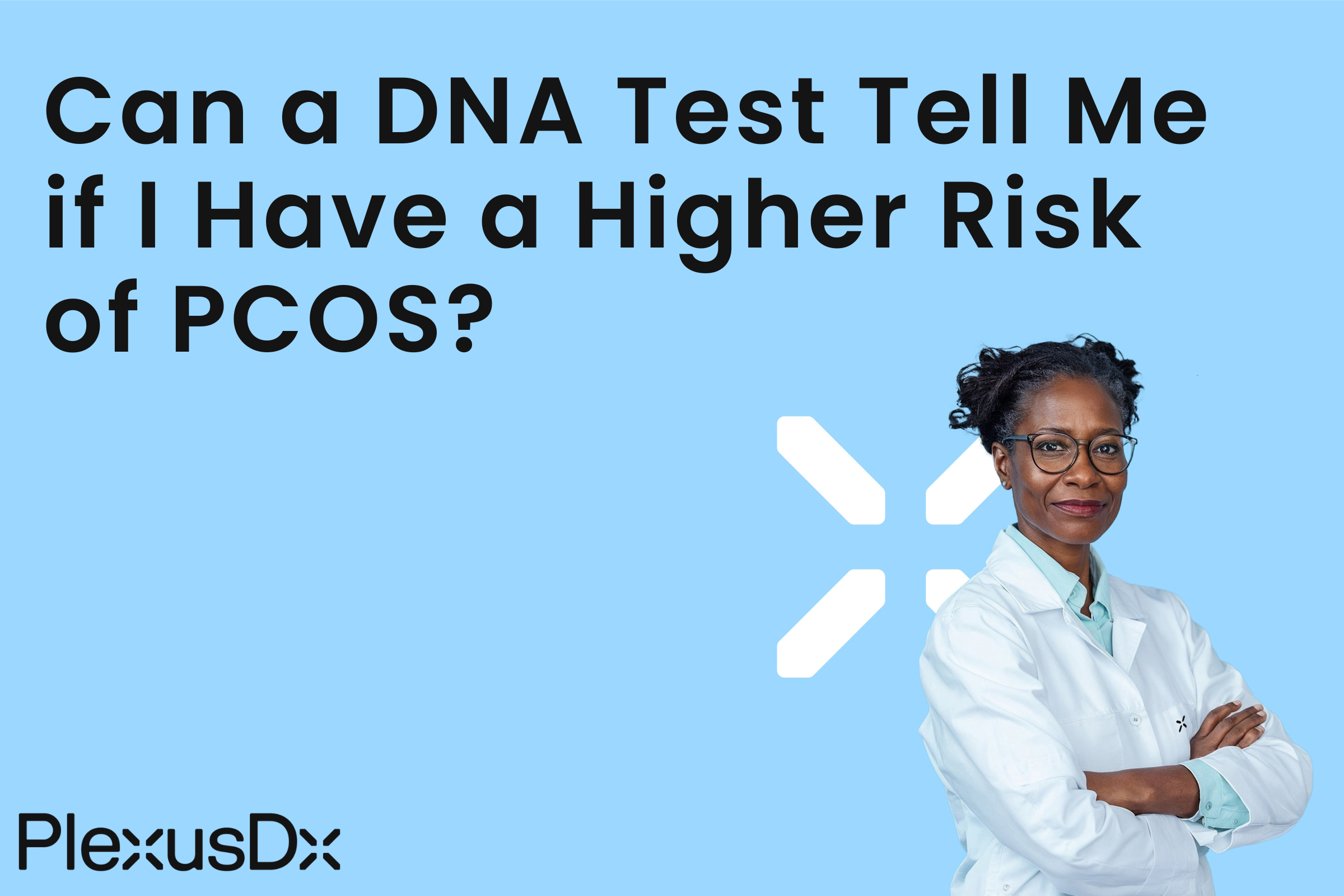Is it possible to identify my PCOS risk through genetic testing?
Have you considered how your genetic information might influence your medical health problems? Advancements in genetic testing now enable individuals to learn about their health risks including Polycystic Ovary Syndrome (PCOS) for people who experience irregular periods and weight gain along with excessive hair growth. This blog post will demonstrate how DNA testing reveals your chances of having PCOS and outlines methods to control your health.
Understanding PCOS and Its Genetic Links
A hormonal disorder named Polycystic Ovary Syndrome (PCOS) impacts numerous women who are of reproductive age. The condition may manifest through multiple symptoms such as irregular menstrual periods and infertility along with various metabolic disorders. Research indicates that genetic factors may have a major influence on PCOS development even though scientists have not yet determined its exact cause. Research indicates that women who have relatives with PCOS face a higher risk of developing the disorder. At this point DNA testing becomes relevant.
Genetic testing methods allow researchers to study particular genetic indicators that show a connection to PCOS. These tests cannot establish a PCOS diagnosis but they can show if you have an elevated genetic risk for developing the condition. Specific genes associated with insulin resistance and hormone regulation show connections to PCOS. An awareness of your genetic profile allows you to take preventive actions for your health management.
How DNA Testing Works
Health risk DNA testing usually requires a basic saliva or blood sample. The sample undergoes analysis to detect genetic markers that signal potential susceptibility to various diseases such as PCOS. Here’s how the process generally works:
- Sample Collection: The process starts with you submitting a sample typically collected via a saliva kit or a blood draw.
- Analysis: The sample goes to a laboratory for analysis of genetic markers linked to PCOS.
- Report Generation: Your genetic predisposition to PCOS and other health conditions is explained in detail through the report you receive.
The DNA testing process may be simple but remember that it represents only one component in the broader health evaluation framework. Use DNA test results alongside other health evaluations and professional consultations with your healthcare provider.
Practical Steps to Take After Testing
After undergoing DNA testing and finding you have an increased risk of PCOS what steps should you take next? Here are some actionable steps to consider:
- Consult with a Healthcare Provider: You need to consult with a healthcare provider after obtaining your DNA test results. Healthcare providers will analyze your test results alongside your general health profile to suggest additional testing or lifestyle adjustments when needed.
- Monitor Your Symptoms: Document any signs or symptoms that you experience. Possible symptoms to track are irregular menstrual cycles along with fluctuations in weight and skin problems. Recording your symptoms helps your healthcare provider understand your health better while also assisting in your health management.
- Adopt a Healthy Lifestyle: You can improve your well-being through healthy living habits despite your genetic makeup. Here are some tips:
- Balanced Diet: Consume a diet that emphasizes whole foods through the inclusion of fruits, vegetables, lean proteins and whole grains. Limiting processed foods and sugar intake can lead to better insulin level control.
- Regular Exercise: Your weekly exercise routine should include no less than 150 minutes of moderate physical activity. Engaging in physical activity helps maintain hormone balance while enhancing insulin sensitivity.
- Stress Management: High stress can exacerbate PCOS symptoms. Practice yoga and perform meditation or deep-breathing exercises as methods to reduce stress levels.
- Stay Informed: Knowledge is power. Stay informed about PCOS and its management. Connect with support groups and read articles while considering a consultation with a nutritionist and women’s health specialist.
Conclusion
DNA tests cannot provide a definitive PCOS diagnosis but they offer valuable insights about your genetic predisposition to the condition. By understanding your health risks you gain the ability to proactively take steps toward better health management. Explore your genetic makeup in relation to PCOS through the Precision Health & Wellness tests from PlexusDx. The Precision Health & Wellness tests by PlexusDx help you learn about your health risks and make better health choices. The Precision Health & Wellness tests by PlexusDx are available for purchase through their official website PlexusDx.com as well as through major retailers like Amazon and Walmart. Starting your personalized health journey with proper understanding will guide you toward a healthier future.
Where to Buy PlexusDx Genetic Tests
Ready to take control of your health with precision genetic insights? You can purchase the PlexusDx Hormone and Reproductive Health Genetic Test from these trusted retailers:
- 👉 PlexusDx – Order directly from our official website.
- 👉 Amazon – Convenient shopping with fast shipping.
- 👉 Walmart – Buy online from a trusted retailer.
Get your personalized DNA insights today and start optimizing your health! 🚀

Share:
Is There a Genetic Test to See if I Have a Fast Metabolism?
Is There a Genetic Test to See if I Have a Fast Metabolism?